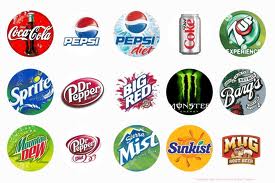
It's that time of year again. The time between Thanksgiving and the
New Year is associated not only with "Deck the Halls" and "Trim the
Tree," but also with over-eating and over-indulging.
During the six weeks of back-to-back holidays that includes Thanksgiving, Kwanza, Hanukkah, Christmas, and New Year's, it's easy to pack on the pounds with all the parties, celebrations, and events if you don't have a plan.
Perhaps you won't lose any weight during the holiday season, but with these tips you'll at least have fun maintaining your current weight and not add anymore around the middle.
During the six weeks of back-to-back holidays that includes Thanksgiving, Kwanza, Hanukkah, Christmas, and New Year's, it's easy to pack on the pounds with all the parties, celebrations, and events if you don't have a plan.
Perhaps you won't lose any weight during the holiday season, but with these tips you'll at least have fun maintaining your current weight and not add anymore around the middle.
1. Be Realistic
This is not the time to begin a new diet. Think about maintaining
your weight, not about losing weight during the holiday season. Staying
rigid can lead to over-eating. Forget about the idea of being "perfect,"
it is impossible to be perfect during the most ideal circumstances;
much less during a time of endless buffets and parties.
2. Eat Before The Party
Never arrive at a party or event hungry. Eating a light, healthy snack
such as raw vegetables with salsa, an apple, or small green smoothie
before an event or party will leave you better equipped to make better
food choices.
 3. Rethink Baking
3. Rethink Baking
Love the idea of getting out the rolling pins, cookie cutters, and
holiday apron? This year, replace your traditional fat and sugar laden
recipes with healthy new ones.
4. Don't Make It All About The Food
Spend more time "Decking the halls" and "Trimming the Tree" instead of
making candy and cookies. Try to encourage family and friends to join
you in games, nature walks, or crafts to take the focus off food.
5. Always Bring A Healthy Dish To The Party
At least you know you'll have one thing to eat if everything else is off
limits. Plus others will probably be thankful for the healthy option.
6. Don't Drink Your Calories
Whether it's in the form of alcohol or sugary drinks, most beverages
have way too many calories and unnecessary sugar. Try this low calorie
spritzer instead: mix two ounces of wine, four ounces club soda, a
splash of cranberry juice, and a hint of lime.
7. Be The Last In Line For Buffets
 When
you are the first in line then you are usually finished by the time the
last person starts and you will be more inclined to go back for
seconds. Once others have picked through the buffet, it usually doesn't
look as appetizing. By the time you finish and have thoughts of going
back for seconds, there is often nothing left.
When
you are the first in line then you are usually finished by the time the
last person starts and you will be more inclined to go back for
seconds. Once others have picked through the buffet, it usually doesn't
look as appetizing. By the time you finish and have thoughts of going
back for seconds, there is often nothing left.8. Avoid Seconds
Avoiding second helpings can be a challenge, especially when there
is an abundance of delicious foods. To avoid going back for seconds,
firstly make sure that you start off with a reasonable plate of food.
Keep serving dishes off the table to decrease the temptation of that
extra helping (out of sight, out of mind). Chew your food slowly, and
you will not only savor the taste and be more satisfied but your
salivary juices will start breaking down the food, making it easier for
your digestive system. Chances are you will be full by the time you've
finished eating.
9. Enjoy Your Favorites
Pick two or three of your favorite foods of the season and enjoy those in moderation.
No skipping meals - Even if you overeat at one meal, go light on the next. Have a small plate of raw vegetables with hummus, a simple salad, or a small bowl of soup. Skipping meals has been linked to increased glucose levels and even weight gain.
No skipping meals - Even if you overeat at one meal, go light on the next. Have a small plate of raw vegetables with hummus, a simple salad, or a small bowl of soup. Skipping meals has been linked to increased glucose levels and even weight gain.
10. Don't Skip Out On Exercise
Between all the celebrations and everyday schedules, life can get extra
hectic during the holiday season. Maintaining an exercise routine this
time of year is very important. Exercise can not only help burn some of
those extra calories you may be consuming, but it's also great for
stress release.
How Do You Manage Your Weight During The Silly Season?
Source: http://www.naturalnews.com...Have a Healthy and Successful Christmas!

 Find
an "ointment" moisturizer that is oil-based, rather than water-based.
The oil will create a protective layer on the skin that retains more
moisture than a cream or lotion.
Find
an "ointment" moisturizer that is oil-based, rather than water-based.
The oil will create a protective layer on the skin that retains more
moisture than a cream or lotion.  3. Avoid Super-Hot Showers Or Baths
3. Avoid Super-Hot Showers Or Baths
















